Long-term stable AI game world development - Quantitative\Achieve\Multi-agent
GPT-World » Devlog
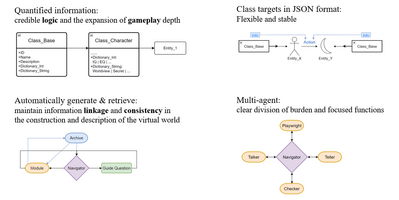
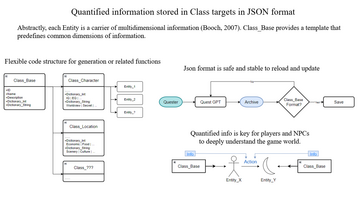
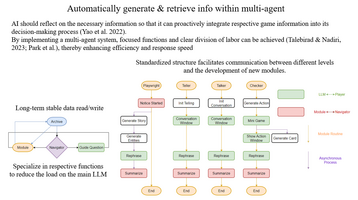
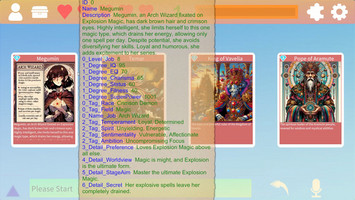
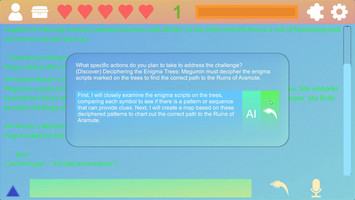
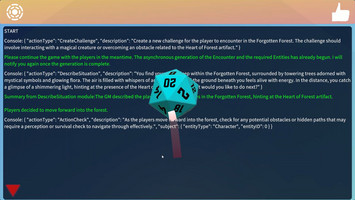
Part 1: JSON Asset Read/Write System and Module Division
-
Universal Template for Game Assets: Class_Base
- Purpose: Class_Base is a template created to manage various game elements like characters, locations, and races. It helps ensure the game can handle different functionalities securely and flexibly, such as saving game progress or generating game content.
- Functionality: It allows for the creation of various subclasses that inherit common functionalities, promoting code reuse and simplification.
- Structure: Basic attributes defined in Class_Base include an ID, a Name, and a Description. This setup helps quickly summarize the entity's role or relevance in the game without needing to delve into detailed information.
- Data Handling: Variables are structured into two types: integers for calculations and strings for descriptive elements that aid in logic and narrative development.
-
Independent Agent Module: Sharing Responsibilities
- Background: Traditionally, games like Dungeons and Dragons (DnD) rely on a Dungeon Master to guide the game. In AI-driven games, relying solely on a single AI (LLM) could overload the system.
- Solution: Implementing a multi-agent system divides responsibilities, enhancing efficiency and response time. Key modules like Navigator, Playwright, Teller, Talker, and Checker handle different aspects of gameplay, from guiding players to generating narratives and managing game interactions.
- Data Flow: Navigator acts as the control hub, directing other modules and handling brief interactions with the game's data archive to ensure accurate and efficient game management.
-
JSON Asset Reading and Writing System: Supporting Long-Term AI DnD Operation
- Overview: A robust Archive system is essential for managing extensive game data over long periods, ensuring the game world remains coherent and engaging.
- Functionality: The system allows the Navigator to access immediate data for quick decisions, while detailed data is accessible to specific modules as needed. This strategy minimizes resource waste and maintains game integrity.
Part 2: Quantitative Entity Information for Reliable AI Logic
- Current Challenges: AI-driven narrative games often struggle with logical consistency because they lack detailed, quantifiable information to make reasoned decisions.
- Solution: By adopting a "Chain-of-Thought" method, the game uses quantified data to more accurately assess the difficulty of actions within the game.
- Implementation: Actions are generated and assessed using detailed JSON templates which allow for more stable and logical interaction within the game environment.
- Advantages: This method supports more realistic and sustained player interactions by basing actions on quantifiable data, unlike systems that rely overly on vague descriptions.
Files
GPT-World.zip 70 MB
May 18, 2024
Get GPT-World
GPT-World
Interactive fiction powered by GPT-4o
| Status | In development |
| Author | RestatHome |
| Genre | Interactive Fiction, Adventure, Role Playing |
| Tags | AI Generated, Dice, Fantasy, Unity |
Leave a comment
Log in with itch.io to leave a comment.